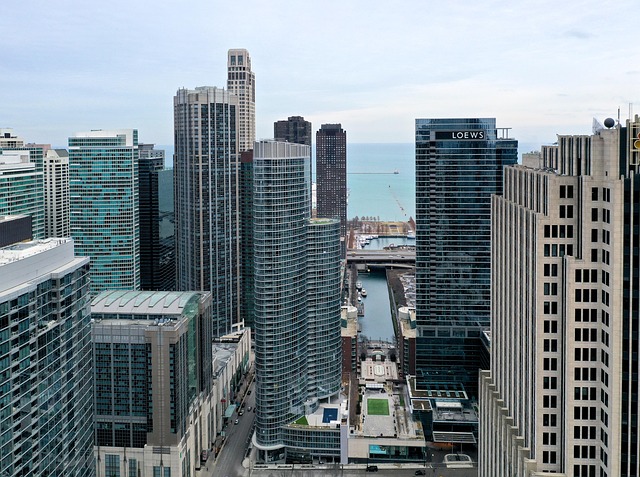In Illinois, patients harmed by medical negligence have a two-year statute of limitations to file lawsuits, from discovery of harm. Doctor law firms in Chicago IL specialize in navigating complex medical malpractice and professional negligence cases, ensuring victims' rights are protected within legal deadlines. Consulting these experts is crucial for timely action, especially with time-sensitive injuries, to maximize compensation for doctor abuse.
In Illinois, understanding the statute of limitations for medical malpractice cases is crucial for patients seeking justice. This comprehensive guide navigates the complexities of the Illinois Doctor Abuse Statute, focusing on key provisions and time limits for legal action. We distinguish between medical malpractice and professional negligence, highlighting when to consult a Chicago doctor law firm for expert guidance. Our article ensures you’re informed about navigating legal intricacies for optimal outcomes.
Illinois Doctor Abuse Statute: Key Provisions

In Illinois, the doctor abuse statute, formally known as the Medical Professional Liability Act, outlines crucial legal provisions for individuals who have suffered harm due to medical negligence or malpractice. This law establishes a clear framework for patients to seek justice and compensation for their injuries. Key among these provisions is the statute of limitations, which dictates the time frame within which legal action must be taken. Generally, patients in Illinois have two years from the date they discovered or should have discovered the harm caused by the doctor’s negligence to file a lawsuit.
This timeline emphasizes the importance of prompt action for individuals considering legal recourse against a doctor law firm in Chicago, IL. It underscores the need for victims to secure medical records and consult with experienced legal professionals who can guide them through the complex process of filing a claim. Understanding these statutory guidelines is essential for anyone seeking redress for doctor abuse or medical malpractice within the state of Illinois.
Understanding Time Limits for Legal Action

Understanding Time Limits for Legal Action
When considering legal action against a healthcare provider in Illinois, it’s crucial to be aware of the statute of limitations—the time frame within which you can file a lawsuit. In Illinois, this period is generally two years from the date of the incident or when the injury was discovered, whichever comes later. This applies to medical malpractice cases, including instances of doctor abuse. A Chicago IL doctor law firm can provide guidance tailored to your situation, ensuring that your rights are protected and that you meet all legal deadlines.
The statute of limitations is strictly enforced, so it’s essential to act promptly. Delays in pursuing legal action could result in your case being dismissed from court. A skilled lawyer will help navigate these complexities, offering expert advice on how to gather evidence, document incidents of abuse, and file a claim within the prescribed time frame.
Medical Malpractice vs. Professional Negligence

In the realm of legal advocacy, understanding the distinction between medical malpractice and professional negligence is paramount, especially for those seeking justice in Illinois. While both terms may seem similar at first glance, they represent distinct areas of law with unique implications for patients and healthcare professionals alike. Medical malpractice typically arises from acts or omissions during the provision of medical care that deviate from accepted standards, resulting in harm to the patient. This can encompass a wide range of scenarios, from misdiagnosis and improper treatment to errors in medication or surgical procedures.
On the other hand, professional negligence specifically targets the breach of a duty of care owed by professionals, including doctors, based on their special knowledge and expertise. In Chicago IL, doctor law firms often navigate these complexities, assisting clients in navigating the intricate legal landscape surrounding medical disputes. The key difference lies in the focus: medical malpractice centers on the actual treatment or lack thereof, while professional negligence extends to broader areas of professional conduct, ensuring that healthcare providers adhere to ethical and legal standards in their practice.
When to Consult Chicago Doctor Law Firm

If you’re a resident of Illinois and have experienced medical negligence or doctor abuse, it’s crucial to understand your rights and the legal timeframes involved. The statute of limitations for such cases can be complex, especially when dealing with injuries that develop over time. In such situations, consulting a Chicago doctor law firm becomes increasingly vital.
Seeking expert legal counsel from a reputable Chicago IL doctor law firm is recommended as soon as you suspect medical malpractice. Their expertise lies in navigating the intricate laws surrounding medical errors and ensuring you file your claim within the prescribed time limits. Timely action is essential to protect your rights and maximize potential compensation for the harm suffered due to doctor abuse.
Navigating Legal Complexities with Expertise

Navigating legal complexities surrounding medical malpractice claims can be daunting, especially for patients seeking justice in Illinois. This is where a seasoned doctor law firm in Chicago, IL, becomes invaluable. Such firms specialize in understanding the intricate details of state laws and regulations, including statute of limitations guidelines. With their expertise, victims of doctor abuse can ensure their rights are protected and that they file within the prescribed time frame.
They provide clarity on issues like when the limitation period starts, what triggers it, and any applicable exceptions or extensions. This guidance is crucial for individuals who may have been harmed due to medical negligence but are unsure about legal options or timelines. Engaging a Chicago doctor law firm with a proven track record in handling such cases can offer peace of mind and improve chances of achieving favorable outcomes.






